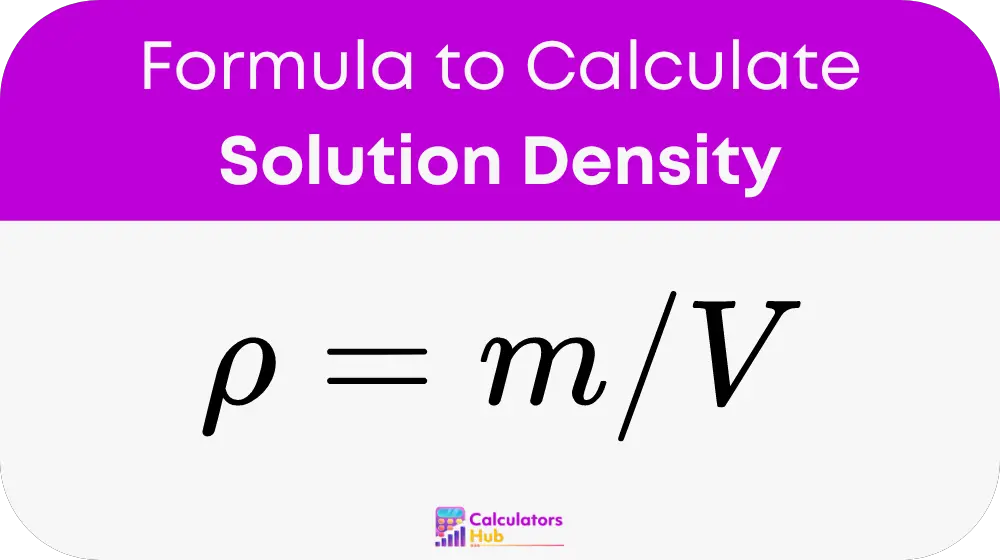The Solution Density Calculator is designed to provide an accurate measurement of the density of a liquid solution. This tool is indispensable in laboratories and industries where precise measurements are necessary for quality control, research, and development. Whether you’re a student, a professional chemist, or someone involved in product manufacturing, this calculator can significantly streamline your workflow.
Formula of Solution Density Calculator
The fundamental formula used by the Solution Density Calculator is:

Where:
- ρ (rho) is the density of the solution,
- m is the mass of the solution,
- V is the volume of the solution.
To calculate the density of any solution, follow these steps:
- Measure the mass (m) of the solution using a precise balance.
- Measure the volume (V) of the solution using a graduated cylinder or other appropriate measuring instrument.
- Divide the mass (m) by the volume (V) to determine the density (ρ) of the solution.
Practical Application and Utility
The knowledge of solution density is not just academic; it has practical applications in various industries. For example, in the food industry, the density of a mixture can affect texture and taste. In chemical engineering, the density of solutions influences the design and operation of equipment and processes.
Example of Solution Density Calculator
Consider calculating the density of a saline solution used in medical laboratories:
- Mass of saline solution (m): 300 grams
- Volume of saline solution (V): 250 milliliters
Using the formula ρ = m / V:
- Density ρ = 300 g / 250 mL = 1.2 g/mL
This example shows how the calculator can be used to quickly find the density needed for precise applications.
Common Conversion Table
| Unit | Conversion Factor |
|---|---|
| g to kg | 1 g = 0.001 kg |
| mL to L | 1 mL = 0.001 L |
| lb to g | 1 lb = 453.592 g |
This table helps in converting units to match the measurement requirements of different industries.
Most Common FAQs
Solution density is a measure of the mass per unit volume of a solution, typically expressed in grams per milliliter (g/mL) or kilograms per liter (kg/L).
Knowing the density helps in quality control, mixture consistency, and the application of solutions where specific mass-volume ratios are crucial.
Inaccurate measurements can lead to incorrect density values, affecting the outcome of experiments or product quality. It is essential to use calibrated instruments and proper techniques.